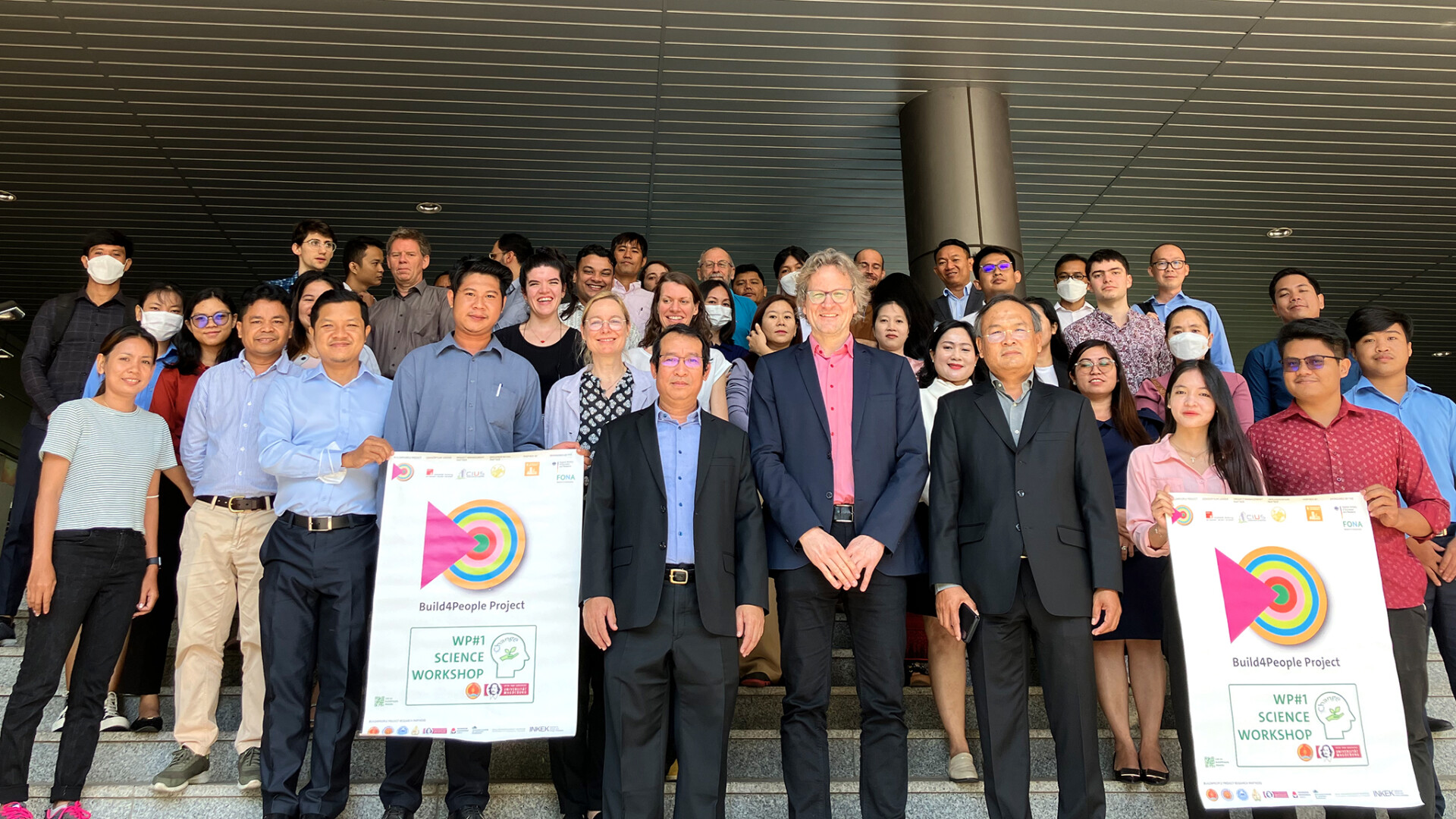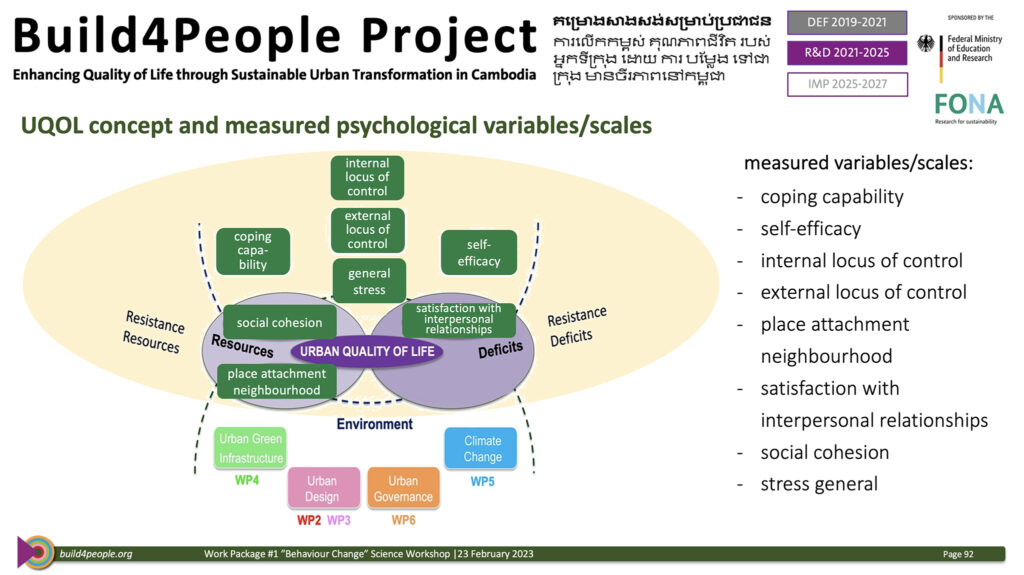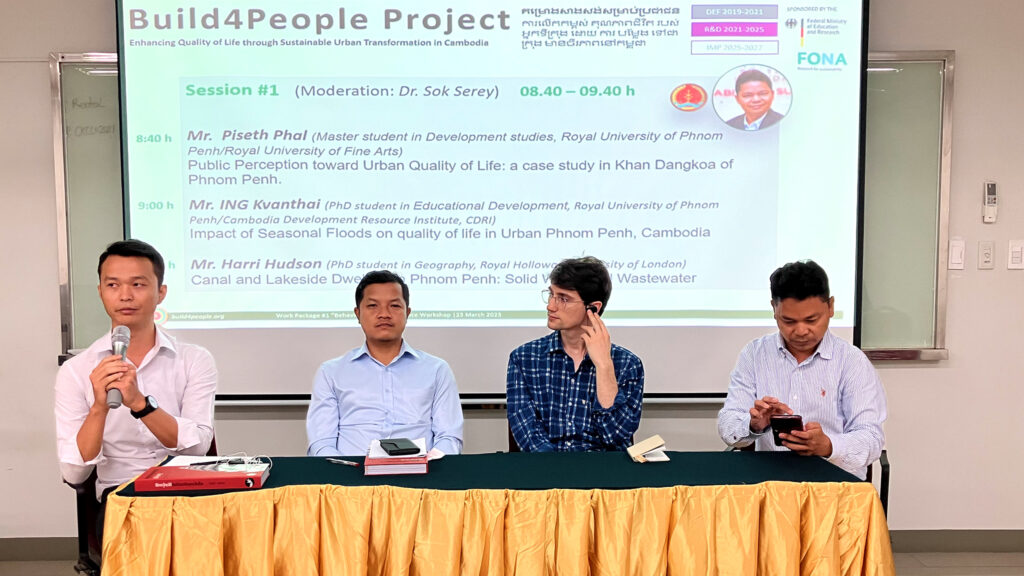
On 23 February 2023, Build4People Work Package #1 “Behaviour Change” led by Magdeburg University conducted a Science Workshop with the topic “Urban Quality of Life in Phnom Penh” at the Cambodian Korean Cooperation Centre of Royal University of Phnom Penh.
In the beginning, the workshop featured interesting presentations by master student Piseth Phal as well as PhD students Kvanthai Ing and Harri Hudson, who shared their research on various aspects of Urban Quality of Life in Phnom Penh. Their thought-provoking presentations were followed by interesting questions and a fruitful discussion.

After a short coffee break, WP#1 Researchers Dr. Anke Blöbaum, Ramune Pansa, Dr. Vanna Op, and Dr. Serey Sok provided insights from their latest panel study and its results. During this study, standardised interviews were conducted with a representative sample of 750 households in Phnom Penh from April to May 2022.
The study aimed to analyse the ecological behaviour patterns of Phnom Penh residents and identify opportunities for behaviour change interventions that could improve their quality of life. One of the main findings deriving from statistical analysis was that about 28% of participant’s perceived Urban Quality of Life can be traced back to psychological factors.
Participating students, researchers and local actors also heard a speech by B4P project leader Michael Waibel, who thanked all the participants and highlighted the importance of individual consumption behaviours in the context of ecological urban change. Moreover, he discussed the B4P vision and the project’s focus on achieving equality in urban quality of life in Phnom Penh.

Overall, the workshop was a successful event that allowed the participants to gain new insights and perspectives on behaviour change and urban quality of life in a Cambodian context. The research presented at the workshop will be valuable not only for academic purposes but also policymakers and stakeholders who are working to improve the quality of life in Phnom Penh.
The whole Build4People team would like to thank all participants and especially their research colleagues from RUPP for their dedicated support.